Generative AI in project management is revolutionizing through its ability to automate tasks, enhance decision-making and stimulate innovation. Artificial intelligence in this field has become an influential tool which can generate new content based on current data. This leads to improved results when it comes to managing projects efficiently and productively. In the world of today, AI is transforming how we approach project management – ushering us into a realm of more effective outcomes for successful execution of projects.
Key Takeaways
- Generative AI can revolutionize project management by providing automated tasks, risk identification and outcome analysis to improve decision-making.
- The symbiotic relationship between human expertise and Generative AI can optimize project outcomes while addressing ethical considerations.
- Organizations should equip their teams with the necessary skills for successful integration of AI into existing processes to maximize its potential benefits in project management.
Unpacking Generative AI in Project Management
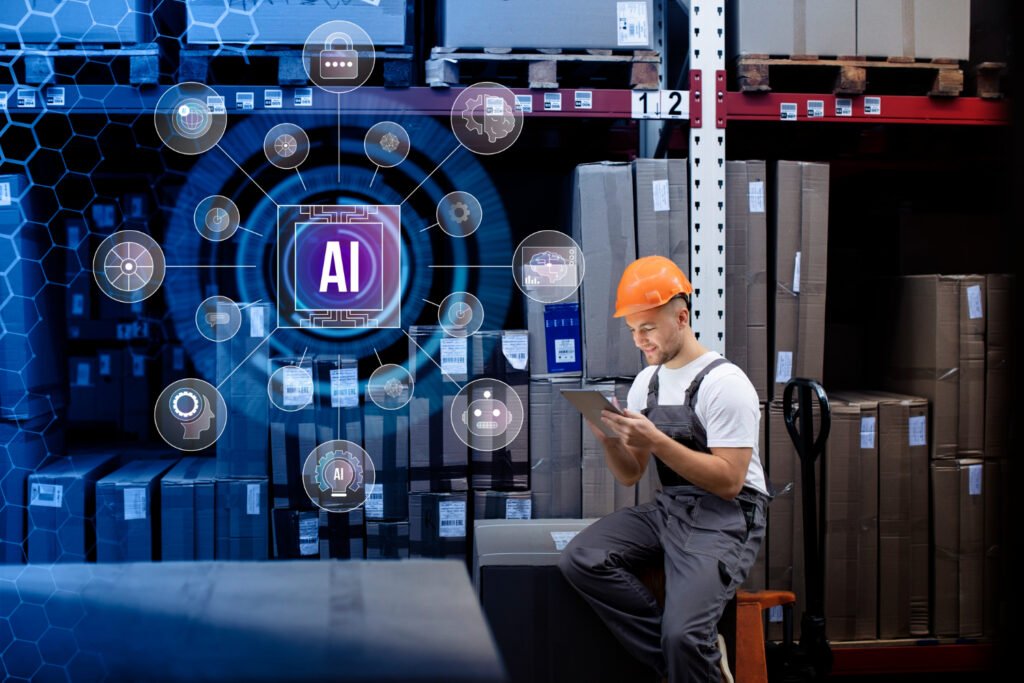
Project managers can harness the power of generative AI to improve their decision-making and increase project success. By mining past projects for data, they can better predict risks involved in new ventures as well as analyze outcomes, task automation adding an extra layer of convenience.
Revolutionizing Task Automation
Generative AI can play a key role in increasing the efficiency of project management by automating repetitive tasks such as resource allocation and scheduling. By doing so, it reduces errors that are caused by manual work while simultaneously allowing project teams to dedicate more time to creative decision-making, which ultimately improves their overall success rate.
Enhancing Decision Making with Data Analysis
Project managers are equipped with an incredibly powerful tool through AI-driven data analysis, which allows them to make better decisions. With the help of this technique for analyzing past projects as well as predicting their outcomes and discovering potential risks related to progress, project management becomes much more effective. When using risk management strategically in order to prevent any problems that could arise during a project’s implementation stages, it is likely they will lead to successful results and smoother execution overall.
Related: Project Management: Unlocking Organizational Performance & Efficiency
Fostering Innovation in Project Planning
Project managers can use Generative AI to their advantage when planning a project, allowing them to discover valuable insights and better address the unique challenges associated with it. By comparing both human-generated and artificial intelligence-produced plans, they are able to gain an understanding of each approach’s capabilities while optimizing those strategies for maximum effectiveness. This ensures that projects have comprehensive and well thought out plans tailored specifically for success in any scenario.
The Symbiosis of Human Expertise and Generative AI

The ideal methodology when incorporating AI into project management is a combination of human and artificial intelligence capabilities – the “human in the loop” approach. By taking advantage of this combined strength, organizations can better prepare their teams for successful projects with all ethical considerations accounted for. Such an integration has been known to result in improved outcomes that simply wouldn’t be achievable through either humans or machines alone.
The Indispensable Value of Human Insights
Project management relies on human insights to provide the necessary context, fill in any gaps, and fine-tune AI generated results. Although machines can process data rapidly while identifying patterns using algorithms. Humans bring their intuition, objective thinking capabilities and judgmental skills into consideration which help identify potential blind spots or analyze ethical implications of decisions made. By merging together these two approaches, a comprehensive plan for project management is achievable with more detailed information collected by both parties involved: people as well as technology.
Ethical Considerations in AI Application
When implementing AI in project management, ethical considerations must be taken into account to ensure the responsible use of technology. Privacy concerns, bias within generated content and potential misuse of output need to be addressed thoughtfully by organizations so that they can adhere to their own values when utilizing AI for projects.
Preparing Project Teams for AI Integration
In order to benefit from the power of AI in project management, it is essential for project teams to be equipped with updated skills such as data analysis, decision-making and understanding how Artificial Intelligence works. It is also necessary that a methodical approach towards integrating AI into existing processes be adopted by organizations looking to optimize their performance through better use of technology.
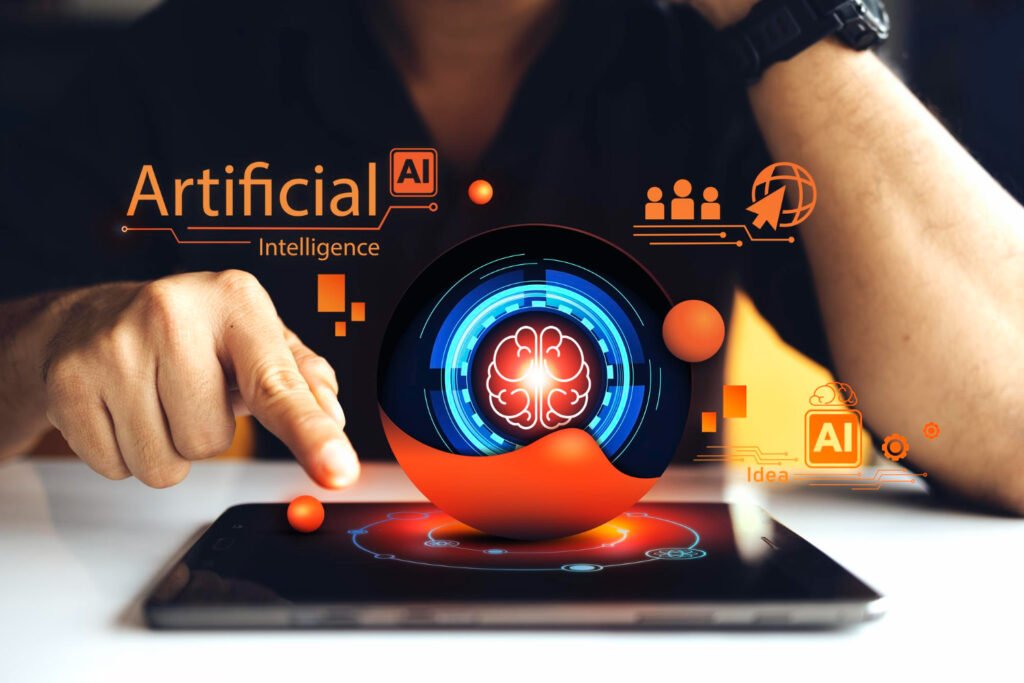
To ensure an effective adoption and smooth transition for using artificial intelligence capabilities in managing projects successfully, proper training needs to be provided so that team members are knowledgeable about everything related from ethics implementation all the way up until interpreting generated results correctly.
Tools and Strategies for Effective AI Implementation
For project management to make the most of AI, organizations must choose appropriate tools and smoothly include them into their processes. This will open up all the advantages artificial intelligence can offer and ensure fruitful results. There are a plethora of AI applications available which should be carefully chosen based on specific needs and objectives for optimum benefits in managing projects. By integrating these technologies into workflows while following progress appropriately, companies can maximize potentials from implementing Artificial Intelligence successfully.
Selecting the Right AI Tools for Your Project
When selecting AI tools for project management, it is important to understand what your organization needs and evaluate the associated capabilities. From integration with existing systems to accuracy of results and user experience, these elements must be taken into consideration in order to ensure that you are choosing the most appropriate AI toolset for maximum benefit. Doing so will enable efficient resource allocation, which can be optimized via generative artificial intelligence solutions designed specifically for optimizing project success outcomes. Cost also plays an important factor when considering available AI software options. Adequate support and training should always accompany any investment made towards such technology too.
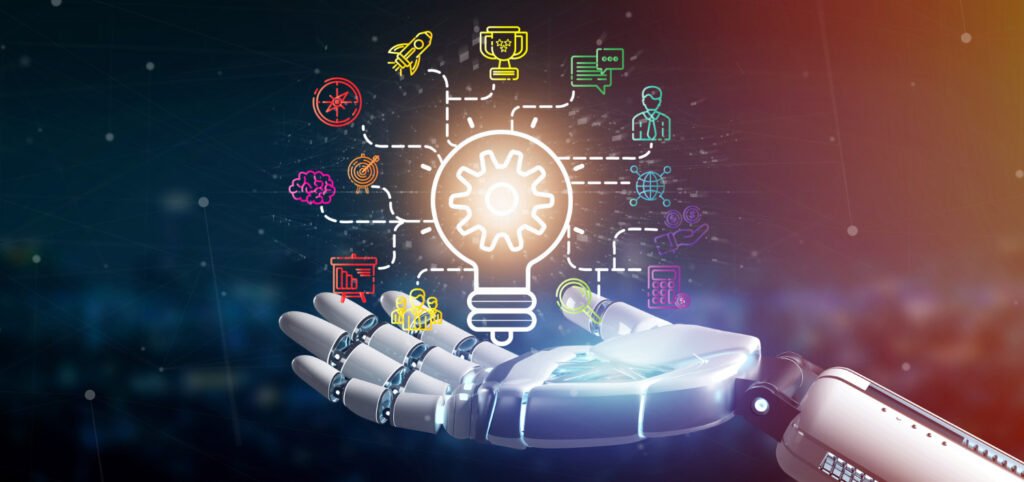
Best Practices for Integrating AI into Project Workflows
To integrate AI into project management processes, it is important to set objectives and guidelines that both humans and machines can adhere to. Good practices include assessing team capabilities then providing training or assistance if needed, commencing slowly with small projects before eventually scaling up, making sure the data used by AI tools are applicable and of excellent quality. As well as cultivating cooperation between people working on a project alongside artificial intelligence solutions. Organizations who adhere to these strategies stand a better chance of profiting from all that technology has to offer for their business operations.
Tracking Project Progress with AI
AI tools can provide an efficient way to track progress on projects, delivering updates in real-time and automating reporting. These solutions are designed to monitor project performance, assemble visual dashboards of data that inform leaders about the status of their projects so any potential issues can be addressed quickly before they become bigger problems. Through consistent monitoring with AI technology, it is possible for proactive risk mitigation measures which help ensure completion within schedule parameters. Such visibility into a project’s progression also enables timely decisions based on what has been tracked over time so as to keep projects running smoothly and effectively.
Real-World Applications: AI-Driven Success Stories
Project management practices that include AI can unlock new possibilities, overcoming any resource limitations and increasing efficiency. By leveraging automation, streamlining processes and offering data-driven insights to guide projects along the path to success, these technologies have been proven to aid in project development.
Integrating Artificial Intelligence into existing structures is key for successful outcomes, allowing organizations of all kinds to benefit from its advantages when managing their respective projects.
Transforming Project Management with AI
Project management can be completely transformed through the implementation of AI-driven solutions. One example is that Siemens used an AI solution to optimize and manage resources over different projects, taking into consideration previous project details, existing workloads as well as employee skill levels. This case study serves as a prime illustration of how powerful this technology can be for optimizing business results while streamlining process efficiencies at the same time. By leveraging historical data with current skillsets and workloads, organizations will have access to smarter resource allocation options in order to maximize their potential outcomes overall.
Overcoming Resource Constraints Through AI Solutions
Project managers can benefit from AI-powered project management tools to address potential risks, resource constraints and bottlenecks before they arise. This allows for better allocation of resources, which in turn results in improved outcomes while also reducing costs. Automating tasks and decreasing the time spent on testing is another way that these solutions help alleviate any resource shortages when it comes to managing projects successfully.
Related: Risk Management: Ultimate Guide to Navigating Uncertainties

Boosting Productivity and Team Performance
Project management can benefit greatly from AI technology, which is capable of streamlining workflows, automating tedious tasks and providing data-driven insights. This can help project managers focus their time on more strategic decisions that will contribute positively towards the success of a given assignment while freeing up resources in terms of both cost and duration. It has been proven through case studies that implementation results in increased productivity across teams along with improved collaboration within organisations due to automated functions such as scheduling reports or risk assessment being handled by AI tools. Ultimately, this creates an environment conducive to reaching optimal levels of performance resulting in higher levels of successful projects over all.
Navigating Challenges: Limitations and Future Potential
Project management can benefit from leveraging the synergies between Artificial Intelligence (AI) and human capabilities. To do so successfully, project managers must be aware of any limitations AI poses while remaining informed about emerging technologies. This will also require being prepared for future challenges as well as taking into account potential ethical considerations that may arise with AI in projects. With these steps followed thoroughly, they are certain to achieve successful results every time.
Recognizing the Limits of AI in Project Management
It is essential for project managers to comprehend the restrictions of AI in project management, such as potential biases, small sample sizes and reliance on human input. While AI can examine data and produce plans dependent on patterns and algorithms, it cannot take over human decision making or encompass contextual knowledge. It’s important that any output generated from an artificial intelligence system be bolstered with insights provided by people to ensure successful execution of a project plan. Recognizing this limitation helps maintain effective results within Project Management involving Artificial Intelligence usage. Overall leading to optimally efficient outcomes when executing projects using these technologies combined together.

The Evolving Landscape of AI Technologies
Project managers need to stay ahead of the game when it comes to AI in project management by keeping up with emerging technologies and advancements. This way, they can make sure that their projects are utilizing all available options so as to obtain optimal results for successful outcomes. Knowing about new developments related specifically to this area is key for those overseeing AI-based initiatives at any level.
Preparing for the Future of Project Management
In order to prepare for the changes that are coming in project management, organizations and project management governance bodies like Project Management Institute (PMI) need to invest in training and development of their team members. This will ensure they can take advantage of artificial intelligence’s benefits while working through its unique challenges within this industry. By equipping individual project managers with these skills now, it enables them to be ahead of the curve and better handle any projects’ specific demands when it comes time.
Collaboration between human personnel and AI is a vital part which must also not be overlooked. As by doing so, teams can reach successful outcomes via an increased awareness about how best utilize both effectively together down the line.
Summary
Project managers must keep up with emerging AI technologies to best equip their organizations for success in project management. By leveraging the power of Generative AI, they can automate tasks, optimize decision-making and foster innovation which will ultimately result in improved project outcomes despite resource constraints. With a combination of human expertise and intelligent technology, productivity levels could be boosted significantly, allowing businesses to reach ambitious goals more quickly than ever before.
Related: Decoding the Role of PMO: Key Factors in Project Success
Frequently Asked Questions
What is generative AI for project managers?
Project managers can utilize the power of Generative AI to make well-informed decisions, as it leverages historical data and identifies patterns, trends and optimal techniques. This technology is significantly affecting PM processes in various ways, furnishing project practitioners with immense potential that Artificial Intelligence has to offer for their work.
How is AI used in project management?
In project management, AI is being employed to assist with task scheduling and cost analysis. By leveraging this technology, timelines can be more effectively managed while also providing a greater degree of accuracy when it comes to budgeting the project.
Is AI going to replace project managers?
No, AI will not replace project managers; rather, it will help shift their roles away from administrative tasks and toward leadership and motivating a team.
What are the limitations of AI in project management?
AI in project management can be restricted by potential biases, limited data sets and the necessity for humans to provide important decisions within a context.
Are there any real-world applications of AI in project management?
Project management has seen the benefits of AI in its ability to streamline processes, combat resource issues and elevate output. Through the implementation of this advanced technology, organizations have been able to gain a competitive advantage by optimizing their workflows while overcoming restrictions related to resources – all resulting in a competitive advantage.



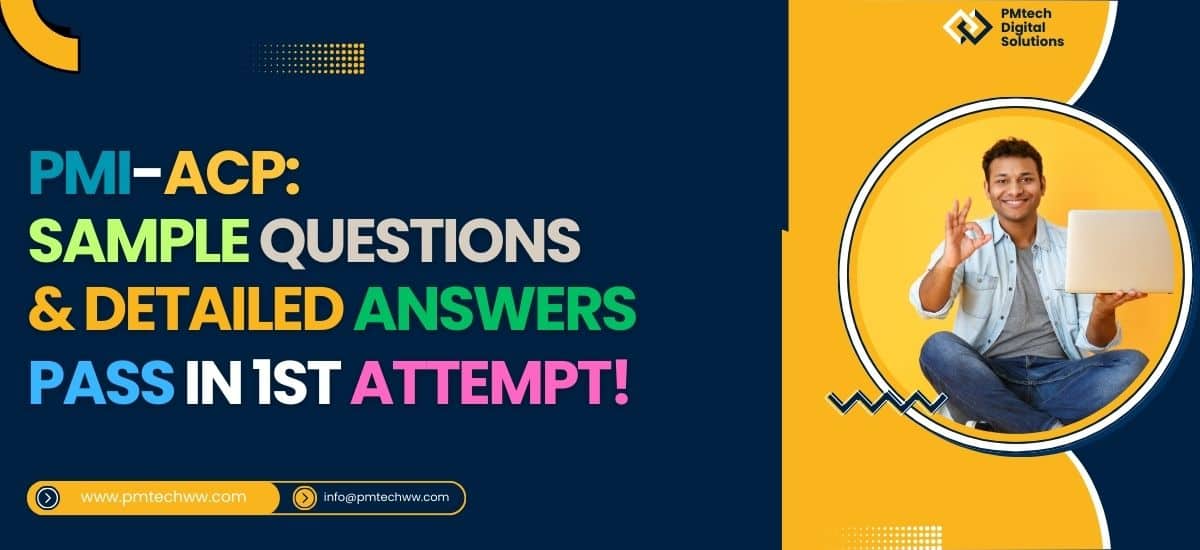
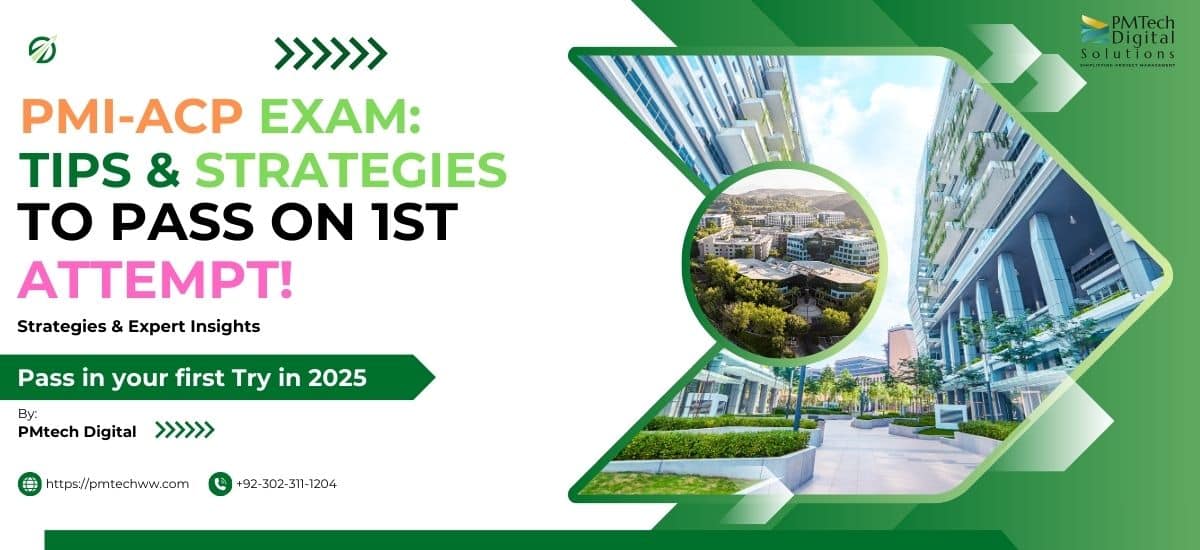

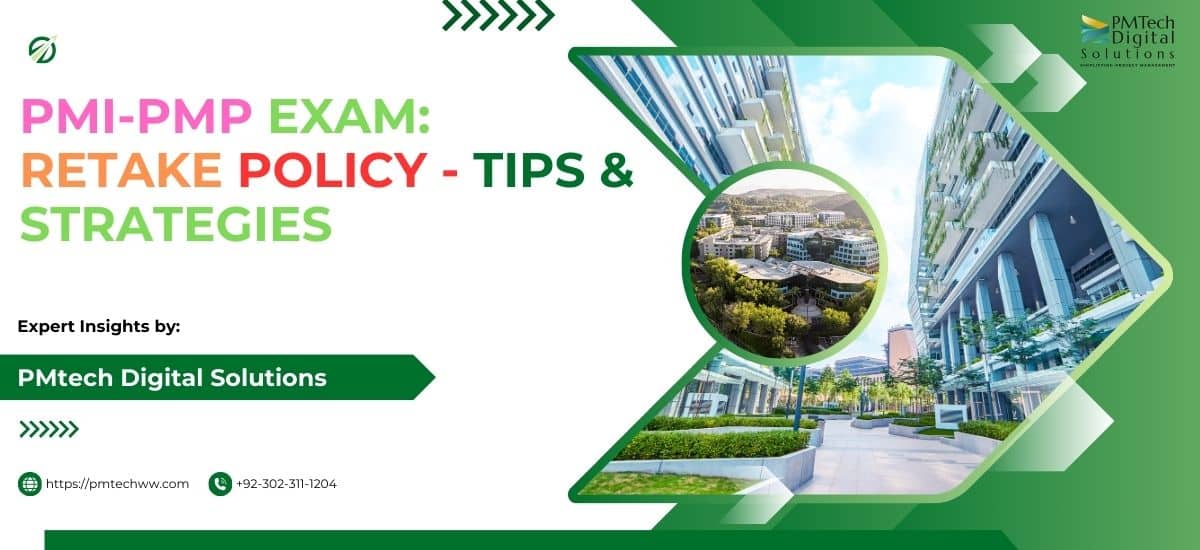





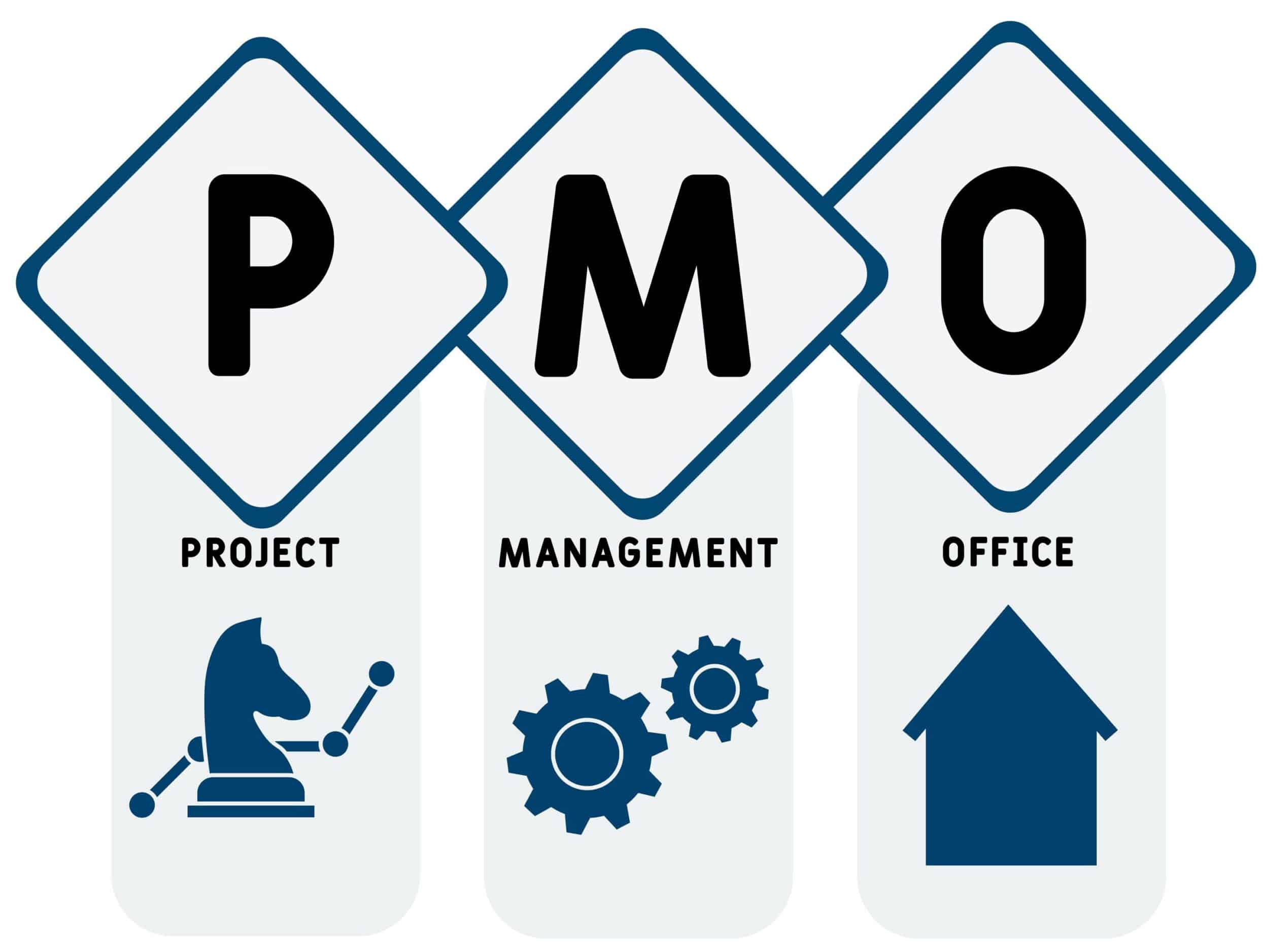
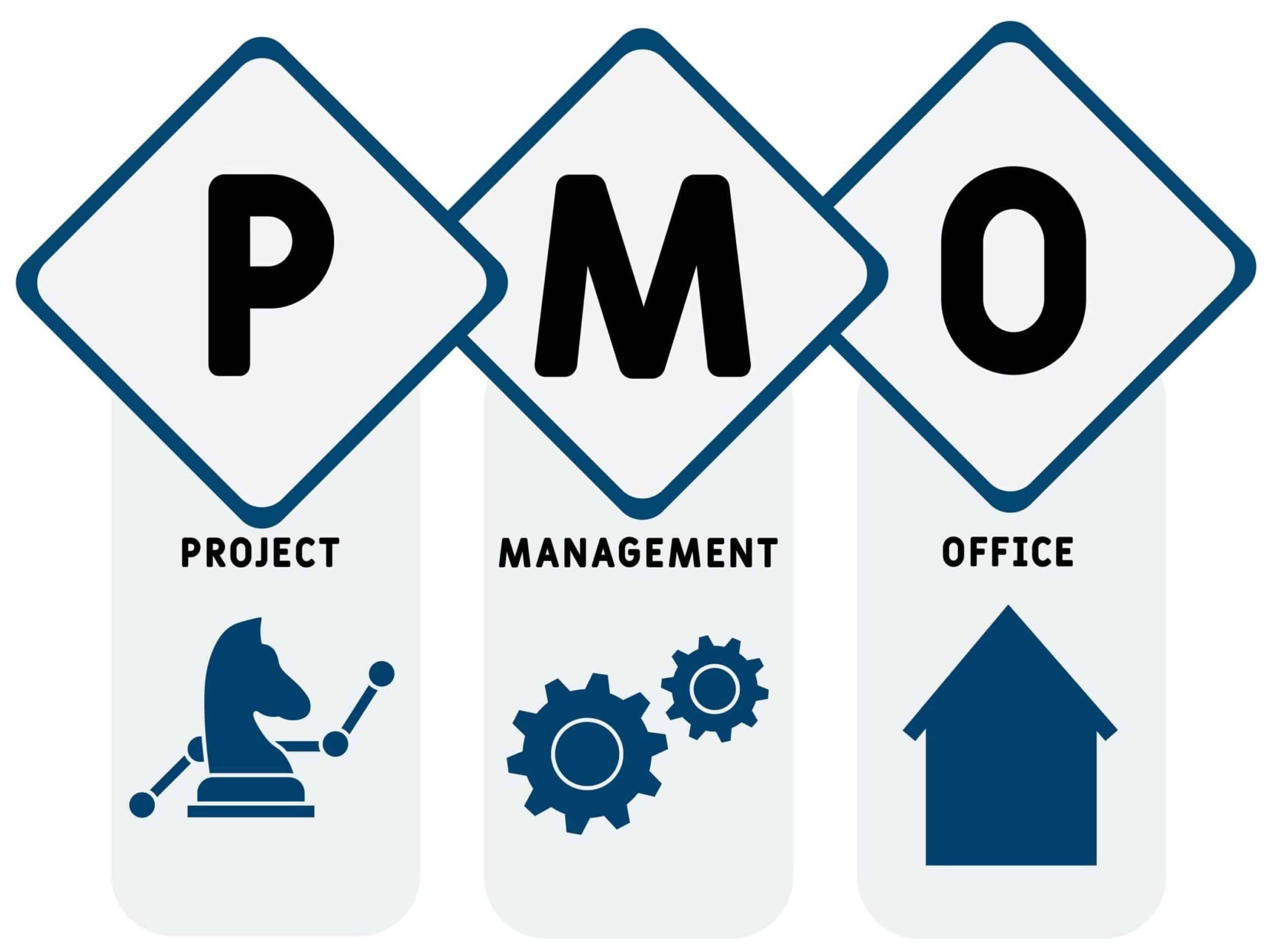





91 Responses
Howdy! Do you know if they make any plugins
to help with SEO? I’m trying to get my blog to rank for some targeted
keywords but I’m not seeing very good success. If you know of any please share.
Thank you!
Активировать карту Monobank удобно и быстро!|
%card_name% является практичным выбором для
повседневного использования!|
Монобанк предлагает лучшие условия.|
Подключите карту Монобанк и наслаждайтесь льготами!|
Заказ карты потребует несколько минут благодаря интуитивно понятному приложению
Монобанк.|
Надёжные решения для любых потребностей!|
Начните путь к умному управлению финансами с Mono.|
Максимально честные условия только с Монобанк.|
Получите максимум выгоды с картой
Монобанк.|
Бесплатное обслуживание для каждой карты
Monobank!|
Активувати картку Монобанк легко
та просто.|
%card_name% є найкращим вибором для ваших
цілей!|
Mono пропонує максимально вигідні відсотки.|
Підключіть картку Monobank та насолоджуйтеся розстрочкою!|
Отримання картки займає мінімум часу завдяки інтуїтивно зрозумілому додатку Монобанк.|
Прості рішення для покупок та
платежів.|
Відкрийте шлях до зручних розрахунків з Monobank.|
Без переплат тільки з Монобанк.|
Використовуйте найвигідніші пропозиції з карткою
Монобанк!|
Зручне управління для кожної картки
Monobank!|
Hey I am so happy I found your blog, I really found you by mistake, while
I was browsing on Yahoo for something else, Anyhow I am here now and would
just like to say thanks a lot for a remarkable post and a all round
entertaining blog (I also love the theme/design), I don’t have time to look
over it all at the moment but I have book-marked it and also added your
RSS feeds, so when I have time I will be back to read a
great deal more, Please do keep up the great jo.
What’s up to every , as I am genuinely keen of
reading this website’s post to be updated regularly.
It contains pleasant data.
Here is my blog บิทคอยน์
It’s enormous that you are getting thoughts from this paragraph as well as
from our discussion made at this place.
Hey there! Do you use Twitter? I’d like to follow you if that would be ok.
I’m undoubtedly enjoying your blog and look forward to new updates.
Does your blog have a contact page? I’m having a tough
time locating it but, I’d like to send you an e-mail.
I’ve got some ideas for your blog you might be interested in hearing.
Either way, great website and I look forward to seeing it expand over time.
Good information. Lucky me I recently found your site by accident
(stumbleupon). I’ve book marked it for later!
I know this if off topic but I’m looking into starting my own weblog and was curious what all is needed to get
setup? I’m assuming having a blog like yours would cost
a pretty penny? I’m not very web smart so I’m not 100% sure.
Any tips or advice would be greatly appreciated.
Many thanks
excellent submit, very informative. I ponder why the opposite experts of
this sector don’t notice this. You should proceed your writing.
I’m confident, you have a great readers’ base already!
Hi, constantly i used to check webpage posts here in the early
hours in the morning, since i like to gain knowledge of more and
more.
Wow, that’s what I was seeking for, what a information! existing here at
this blog, thanks admin of this site.
Your style is unique compared to other folks I have read stuff from.
Thank you for posting when you’ve got the opportunity, Guess I’ll
just bookmark this blog.
Appreciate the recommendation. Will try it out.
Wow, this piece of writing is nice, my sister is analyzing such things, therefore I am
going to convey her.
Can you be more specific about the content of your article? After reading it, I still have some doubts. Hope you can help me.
I’ll immediately grab your rss feed as I can not in finding your email subscription link or e-newsletter
service. Do you have any? Please allow me recognise in order that I may subscribe.
Thanks.
Thank you for the auspicious writeup. It in fact
was a amusement account it. Look advanced to more added agreeable from you!
By the way, how can we communicate?
What you published was actually very logical. But, think on this, suppose you added a little information? I ain’t suggesting your content isn’t good,
however what if you added something to maybe get a person’s attention? I mean Generative AI in Project Management: Boosting Project Success – PMtech Digital Solutions is kinda plain. You might look at Yahoo’s home page
and see how they create article headlines to get people to click.
You might add a related video or a related pic or two to grab readers interested about everything’ve got to say.
In my opinion, it would bring your posts a little bit more interesting.
This design is spectacular! You certainly know how to
keep a reader entertained. Between your wit and your videos, I was almost moved to
start my own blog (well, almost…HaHa!) Great job.
I really enjoyed what you had to say, and more than that,
how you presented it. Too cool!
If some one wants expert view on the topic of running a blog after that i advise him/her to pay
a quick visit this weblog, Keep up the fastidious job.
Please let me know if you’re looking for a author for
your site. You have some really good posts and I feel I would be a good asset.
If you ever want to take some of the load off, I’d absolutely love to write some content for your blog in exchange for a link back to mine.
Please blast me an email if interested. Thank you!
This site definitely has all the information and facts I needed about this subject and didn’t know who
to ask.
With havin so much written content do you ever run into
any issues of plagorism or copyright infringement?
My website has a lot of unique content I’ve either created myself or outsourced but it seems a lot of it is popping it up all
over the web without my agreement. Do you know any methods to
help protect against content from being ripped
off? I’d definitely appreciate it.
Hello! Someone in my Myspace group shared this website with us so I came to check it out.
I’m definitely enjoying the information. I’m book-marking and will be tweeting this to my followers!
Wonderful blog and wonderful style and design.
This information is priceless. When can I find out more?
Hi there, constantly i used to check webpage posts here in the early hours in the daylight, for the reason that i love to gain knowledge of more and more.
What’s up to all, how is all, I think every one is getting more from this web page, and your
views are nice in favor of new visitors.
It’s awesome to pay a quick visit this site and reading the views
of all friends on the topic of this piece of
writing, while I am also zealous of getting knowledge.
Wonderful article! That is the type of information that
are supposed to be shared across the net. Disgrace on Google for not positioning this
publish upper! Come on over and discuss with my website .
Thank you =)
My site … Woofi wallet
This is a good tip particularly to those new to the blogosphere.
Simple but very accurate info… Thank you for sharing this one.
A must read post!
I think this is among the most important info for me.
And i am glad reading your article. But should remark on few general things, The website style is great, the articles is really excellent : D.
Good job, cheers
Please let me know if you’re looking for a writer for
your weblog. You have some really good articles
and I believe I would be a good asset. If you ever want to
take some of the load off, I’d love to write some articles for your blog in exchange for
a link back to mine. Please send me an e-mail if interested.
Thank you!
Here is my blog post; Stargate Bridge
Hey there! I know this is somewhat off topic but I was wondering if you
knew where I could find a captcha plugin for my comment form?
I’m using the same blog platform as yours and I’m having difficulty finding one?
Thanks a lot!
Attractive section of content. I just stumbled upon your
site and in accession capital to assert that I get actually enjoyed account your blog posts.
Anyway I’ll be subscribing to your augment and even I achievement
you access consistently quickly.
Link exchange is nothing else except it is just placing the other person’s web site link on your page at suitable place and other person will also do same in support of you.
you’re in point of fact a just right webmaster. The site loading pace is amazing.
It seems that you’re doing any distinctive trick.
In addition, The contents are masterpiece. you’ve performed a fantastic job on this topic!
Thanks on your marvelous posting! I really enjoyed reading
it, you could be a great author.I will make certain to bookmark your blog and will often come back later in life.
I want to encourage you to definitely continue your great work,
have a nice evening!
I constantly spent my half an hour to read this webpage’s articles
everyday along with a cup of coffee.
I enjoy, lead to I found just what I was having a look for.
You’ve ended my four day long hunt! God Bless you man. Have a great
day. Bye
I was wondering if you ever thought of changing the structure of
your website? Its very well written; I love what youve
got to say. But maybe you could a little more in the way of
content so people could connect with it better. Youve got
an awful lot of text for only having 1 or 2 images.
Maybe you could space it out better?
Your point of view caught my eye and was very interesting. Thanks. I have a question for you.
Hey very cool web site!! Guy .. Excellent
.. Amazing .. I’ll bookmark your site and take the feeds also?
I’m glad to search out numerous useful information here within the publish,
we want develop extra strategies on this regard, thanks for sharing.
. . . . .
Thanks for your personal marvelous posting! I really enjoyed reading it, you will be
a great author.I will be sure to bookmark your blog and may come
back in the future. I want to encourage that you continue
your great work, have a nice day!
I don’t think the title of your article matches the content lol. Just kidding, mainly because I had some doubts after reading the article.
Outstanding quest there. What occurred after?
Take care!
Howdy, i read your blog occasionally and i own a similar one and i was just curious if you get a lot of spam feedback?
If so how do you protect against it, any plugin or anything you can recommend?
I get so much lately it’s driving me crazy so
any assistance is very much appreciated.
A motivating discussion is definitely worth comment.
I do think that you need to write more about this subject,
it may not be a taboo matter but generally folks
don’t talk about these subjects. To the next!
Best wishes!!
It’s impressive that you are getting ideas from this article as well
as from our argument made here.
Howdy would you mind letting me know which webhost you’re utilizing?
I’ve loaded your blog in 3 completely different browsers and I must say this blog loads a lot faster then most.
Can you recommend a good web hosting provider at a honest price?
Thanks a lot, I appreciate it!
Fantastic goods from you, man. I’ve understand your stuff previous to
and you’re just extremely wonderful. I really like what you have acquired here, really like what you’re stating and
the way in which you say it. You make it entertaining and you still
take care of to keep it smart. I cant wait to read much more from you.
This is really a great site.
great publish, very informative. I ponder why the opposite specialists
of this sector don’t understand this. You must proceed your writing.
I’m confident, you’ve a great readers’ base already!
Howdy! This blog post could not be written any better!
Looking at this article reminds me of my previous roommate!
He constantly kept preaching about this. I will send this information to him.
Pretty sure he will have a great read. Many thanks
for sharing!
I do trust all of the ideas you have presented in your post.
They’re very convincing and will definitely
work. Nonetheless, the posts are very brief for beginners.
May you please lengthen them a little from
subsequent time? Thank you for the post.
Hello there! I simply want to offer you a big thumbs up for the great info you’ve got here on this post.
I’ll be coming back to your site for more soon.
Do you have a spam problem on this website; I also am a blogger, and I
was wanting to know your situation; we have developed some nice methods and we are looking to trade strategies with others,
be sure to shoot me an email if interested.
I am sure this piece of writing has touched all the internet people,
its really really fastidious article on building
up new weblog.
Great post! We are linking to this particularly great
post on our site. Keep up the good writing.
Hello there! This post couldn’t be written any better!
Reading through this post reminds me of my good old room mate!
He always kept chatting about this. I will forward this page to him.
Fairly certain he will have a good read. Thanks for sharing!
I know this if off topic but I’m looking into starting my own blog and was wondering
what all is required to get set up? I’m assuming having a
blog like yours would cost a pretty penny? I’m not very internet smart so I’m not 100% positive.
Any suggestions or advice would be greatly appreciated.
Many thanks
Heya i’m for the first time here. I found this board and I
to find It really helpful & it helped me out a
lot. I hope to provide one thing again and aid others
such as you aided me.
If some one wants to be updated with newest technologies after that he must be visit this site
and be up to date daily.
What’s Happening i’m new to this, I stumbled upon this I have discovered It positively useful and it has helped me out loads.
I’m hoping to contribute & assist other users
like its aided me. Good job.
You really make it seem so easy with your presentation however I find this topic to be actually one thing that
I feel I would by no means understand. It sort of
feels too complicated and very broad for me. I’m having a look forward in your subsequent put up,
I’ll try to get the hang of it!
Wow, marvelous weblog layout! How lengthy have you been blogging for?
you make blogging glance easy. The overall look of your web
site is magnificent, let alone the content!
Setelah baca ini, langsung daftar di situs slot gacor hari ini.
Beneran gacor! Apalagi kalau pake cara main slot
gacor, auto dapat maxwin!
In addition, through the first ten months of 2022, customers have wagered about USD 73 billion, in the U.S. legally on sports.
Thanks a lot for sharing this with all folks you actually recognize what you are speaking
approximately! Bookmarked. Please additionally consult
with my site =). We could have a hyperlink exchange contract between us
Howdy! I could have sworn I’ve been to this blog before but
after browsing through some of the post I realized it’s new to me.
Anyways, I’m definitely delighted I found it and I’ll be bookmarking and checking back often!
https://europuls88.com/EBB2B3EC9794EB939C/
Наш сайт предлагает вам лучшие финансовые решения! Мы предоставляем разнообразные финансовые продукты, включая кредиты, банковские карты и займы, чтобы помочь вам достигать ваших целей и воплощать мечты. Планируете купить жилье, автомобиль или оплатить учебу? Наши кредитные программы созданы специально для вас. Оформите кредит на нашем сайте всего за несколько минут, выбрав подходящие условия и срок погашения. Наши банковские карты предоставляют не только удобство безналичных платежей, но и множество бонусов и привилегий. Оформите карту онлайн и получайте кэшбэк, скидки у партнеров и участие в программе лояльности. Мы предлагаем карты с различными лимитами и условиями обслуживания, чтобы вы могли выбрать оптимальный вариант для себя. Если вам не хватает средств до зарплаты или на непредвиденные расходы, наши займы – это быстрое и удобное решение. Мы предлагаем прозрачные условия и быстрое одобрение заявок, чтобы вы могли решить свои финансовые вопросы без задержек. Наши преимущества: простота и удобство – оформление заявки онлайн за считанные минуты; надежность и прозрачность – честные условия без скрытых комиссий; индивидуальный подход – учет ваших личных обстоятельств. Не упустите шанс улучшить свою финансовую ситуацию. Оформите кредит, банковскую карту или займ на нашем сайте уже сегодня и наслаждайтесь всеми преимуществами работы с надежным финансовым партнером. Сделайте шаг к своим мечтам на нашем сайте!
Почта Банк – Кредит наличными в Коврове
Наш сайт предлагает вам лучшие финансовые решения! Мы предоставляем разнообразные финансовые продукты, включая кредиты, банковские карты и займы, чтобы помочь вам достигать ваших целей и воплощать мечты. Планируете купить жилье, автомобиль или оплатить учебу? Наши кредитные программы созданы специально для вас. Оформите кредит на нашем сайте всего за несколько минут, выбрав подходящие условия и срок погашения. Наши банковские карты предоставляют не только удобство безналичных платежей, но и множество бонусов и привилегий. Оформите карту онлайн и получайте кэшбэк, скидки у партнеров и участие в программе лояльности. Мы предлагаем карты с различными лимитами и условиями обслуживания, чтобы вы могли выбрать оптимальный вариант для себя. Если вам не хватает средств до зарплаты или на непредвиденные расходы, наши займы – это быстрое и удобное решение. Мы предлагаем прозрачные условия и быстрое одобрение заявок, чтобы вы могли решить свои финансовые вопросы без задержек. Наши преимущества: простота и удобство – оформление заявки онлайн за считанные минуты; надежность и прозрачность – честные условия без скрытых комиссий; индивидуальный подход – учет ваших личных обстоятельств. Не упустите шанс улучшить свою финансовую ситуацию. Оформите кредит, банковскую карту или займ на нашем сайте уже сегодня и наслаждайтесь всеми преимуществами работы с надежным финансовым партнером. Сделайте шаг к своим мечтам на нашем сайте!
PROFI CREDIT в Королёве
Here, we break down the important information you need to know about ExtenZe, and why this may not be your best option for ED treatment. To date, there are no clinical studies that support ExtenZe as an effective ED treatment. There are also valves in these veins that close, too. TestoPrime is a natural supplement that has been designed to help men who are experiencing a decline in testosterone levels. Discrete natural penis enlargement programs let you participate in an on-line anonymous forum in which other men write about how they have managed or eased their discomfort. Although many penis enlargement programs are nothing more than scams, the Penis Enlargement Remedy is a program that can really work. All in all, there is absolutely nothing to lose and you should at least try to use one of these fantastic products. Whether you feel your performance could improve or you’re just curious, there are penis enlargement techniques for you. The manufacturer claims ExtenZe may be a more “natural” way to treat ED and may help increase both performance and pleasure. The manufacturer doesn’t disclose the amount of the listed ingredients. Currently, it costs virtually the same amount to send one message as it does one million.
Vulkan Platinum — это идеальное казино для тех, кто ценит азарт и качественные развлечения. В нашей коллекции игр есть всё — от классики до новинок, позволяющих полностью погрузиться в атмосферу настоящего казино. Игра в Vulkan Platinum — это ваш шанс испытать настоящее волнение и сорвать большой куш.
Почему выбирают именно нас? Каждая игра проверена и соответствует высоким стандартам честности, а ваши данные надежно защищены. Мы радуем пользователей щедрыми бонусами, акциями и соревнованиями, которые увеличивают шансы на победу.
Не упускайте момент, чтобы испытать удачу и присоединиться к Vulkan Platinum уже сегодня! Создайте аккаунт, чтобы воспользоваться всеми преимуществами платформы и увеличить шансы на выигрыш. https://24klubvulkan-breeze.pics/ Вот что вас ждет:
Щедрые бонусы и постоянные акции, делающие игру еще увлекательнее.
Наш ассортимент игр впечатлит даже самых требовательных игроков, предлагая развлечения на любой вкус.
Быстрые и удобные методы пополнения счета и вывода выигрышей.
Vulkan Platinum — это место, где каждый может испытать удачу и выиграть по-крупному.
Анлим Казино — это уникальная платформа, которая предлагает превосходные условия для игры и потрясающий опыт для всех любителей азартных игр. Здесь вы найдете широкий выбор слотов, рулетки, а также множество турниры и акции, которые могут значительно улучшить ваши шансы на победу.
Мы рады предложить удобным интерфейсом, огромной коллекцией игровых автоматов и новыми настольными играми. Азартные игры с щедрыми бонусами и регулярными акциями сделают ваш игровой опыт еще более захватывающим.
Что вас ждет, если вы присоединитесь к Анлим Казино?
Простая регистрация для начала игры — быстрое создание профиля и вы уже готовы начать.
Великолепные бонусы для новых игроков — мы предлагаем вам бонусы при первом пополнении счета, что дает отличное начало вашему игровому пути.
Ежедневные акции и турниры — для всех игроков, которые хотят приумножить свои шансы на победу и заработать дополнительные призы.
24/7 поддержка, готовая помочь вам с любыми вопросами или проблемами, связанными с игрой.
Игры доступны на любом устройстве, так что вы можете наслаждаться процессом игры, будь то на ПК или смартфоне.
Присоединяйтесь к нам прямо сейчас! В Анлим Казино вас ждут невероятные приключения, которые принесут вам волну эмоций и шанс выиграть крупные призы. Присоединяйтесь к нам и выигрывайте уже сегодня!
awesome
AstraGin is a strong supplement created to improve health and wellness and boost efficiency in physical fitness and sports nourishment. It markets better absorption of necessary nutrients, making sure optimum profit from various other supplements. Known for its own ability to strengthen digestive tract health and wellness, AstraGin supports digestive function and improves nutrient uptake, creating it an essential for professional athletes and physical fitness enthusiasts, https://www.tumblr.com/bramblewax/782609719986716672/the-science-behind-astragin-what-studies-point?source=share.
Awesome blog! Do you have any tips for aspiring writers?
I’m hoping to start my own site soon but I’m a little lost on everything.
Would you recommend starting with a free platform like WordPress or go for a paid option? There are so many options out there that I’m totally confused ..
Any ideas? Appreciate it!
Feel free to surf to my website: her explanation
Nicely put, With thanks!
Feel free to surf to my site: https://play.google.com/store/apps/details?id=com.mainframenetwork.catvpnfree&pcampaignid=web_share
Хотите испытать незабываемое азартное развлечение? Добро пожаловать в Irwin Casino! Вы найдете разнообразные игры, прибыльные предложения и молниеносные выплаты! https://irwin-chucklesphere.site/.
Чем это казино привлекает пользователей?
Многообразие игровых автоматов от ведущих провайдеров.
Разнообразные акции с фриспинами и кэшбэком.
Быстрые транзакции на популярные платежные системы.
Интуитивный интерфейс без лишних сложностей.
Дружелюбный саппорт отвечает мгновенно.
Присоединяйтесь к Irwin Casino и ловите свою удачу без ограничений!
Dragon Money Казино — это место, где поток удачи встречается с непревзойдённым игровым опытом. У нас собраны большой выбор слотов и настольных игр, среди которых популярные игры, которые принесут вам удачу.
У нас проходят регулярные турниры и акции, которые дают шанс на значительный выигрыш. Бонусы и привилегии для игроков помогает каждому пользователю получить максимум удовольствия. Начните прямо сейчас, чтобы испытать удачу – https://dragonmoney-spinwin.website/.
Когда стоит попробовать свои силы в нашем казино? Ответ прост!
Что делает нас уникальными:
Быстрая и удобная регистрация в Dragon Money Казино дает вам возможность сразу погрузиться в мир азартных игр.
Почти для всех наших клиентов предусмотрены специальные предложения и привилегии, чтобы удовлетворить любые потребности.
Наши игры работают на всех устройствах, так что вы можете играть где угодно.
Thanks for sharing. I read many of your blog posts, cool, your blog is very good.
Can you be more specific about the content of your article? After reading it, I still have some doubts. Hope you can help me.
I constantly spent my half an hour to read this weblog’s content every day
along with a mug of coffee.
Откройте новые горизонты с нашими финансовыми продуктами! Мы предлагаем разнообразные кредиты, банковские карты и займы, чтобы помочь вам достигать ваших целей и воплощать мечты. Планируете покупку жилья, автомобиля или оплату образования? Наши кредитные программы идеально подходят для любых нужд. Оформите кредит на нашем сайте за считанные минуты, выбрав лучшие условия и сроки погашения. Наши банковские карты обеспечивают удобство безналичных платежей и множество бонусов и привилегий. Оформите карту онлайн и получайте кэшбэк, скидки у партнеров и участвуйте в программе лояльности. Мы предлагаем карты с различными лимитами и условиями обслуживания, чтобы вы могли выбрать оптимальный вариант для себя. Не хватает денег до зарплаты или на неожиданные расходы? Наши займы – это быстрый и удобный способ получить необходимую сумму. Мы предлагаем прозрачные условия и мгновенное одобрение заявок, чтобы вы могли решить свои финансовые вопросы без задержек и лишних хлопот. Наши преимущества: простота и удобство – оформление заявки онлайн за считанные минуты; надежность и прозрачность – честные условия без скрытых комиссий; индивидуальный подход – учет ваших личных обстоятельств. Не упустите возможность улучшить свою финансовую ситуацию. Оформите кредит, банковскую карту или займ на нашем сайте уже сегодня и наслаждайтесь всеми преимуществами сотрудничества с надежным финансовым партнером. Сделайте шаг к своим мечтам на нашем сайте!
Все дебетовые карты в Муроме
I loved as much as you’ll receive carried out right here.
The sketch is tasteful, your authored material stylish.
nonetheless, you command get got an impatience over that you wish be delivering the following.
unwell unquestionably come more formerly again as exactly the same nearly very
often inside case you shield this increase.
My webpage :: our website
Pretty nice post. I just stumbled upon your weblog and wished to say that I’ve truly
enjoyed browsing your blog posts. After all I will be subscribing to your feed and I hope you
write again very soon!
Here is my web blog … Packaging Machinery
I don’t think the title of your article matches the content lol. Just kidding, mainly because I had some doubts after reading the article.
Hi there, I believe your site could be having browser compatibility issues.
Whenever I take a look at your site in Safari, it looks fine however when opening in I.E.,
it’s got some overlapping issues. I merely wanted to give you a quick heads up!
Besides that, fantastic website!
Also visit my webpage … site here
You made your position pretty clearly..